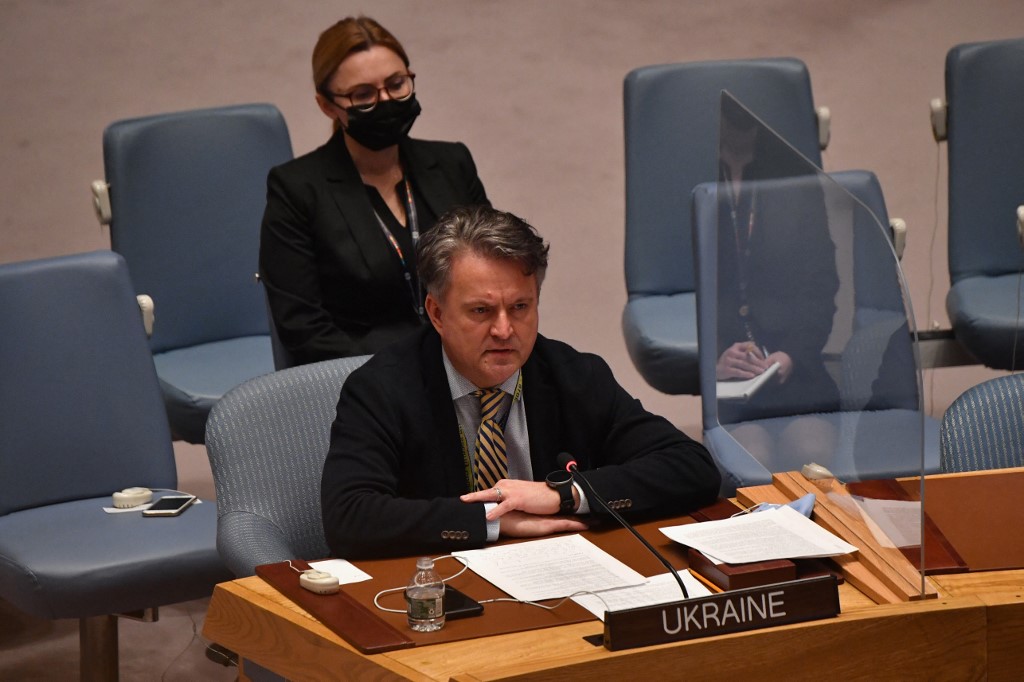Russia-Ukraine war: Is Washington reprising the Soviet-Afghan playbook?

For Afghans of my generation and older, the Russian invasion of Ukraine has reopened old wounds. Images of Russian tanks, heavy flamethrowers and helicopter gunships; the invader’s deceptions and sense of entitlement; the helplessness of ordinary Ukrainians; and, most of all, the attitude of the rest of the world seem like a recurring nightmare.
In a 1998 interview with a French news magazine, former US national security adviser Zbigniew Brzezinski confirmed that in 1979, the US knowingly increased the probability of a Soviet invasion of Afghanistan. When asked whether he regretted that strategy, in light of the emergence of militant movements, Brzezinski defended it: “It had the effect of drawing the Russians into the Afghan trap, and you want me to regret it?”
A decade of the Soviet war in Afghanistan drained the Soviet Union economically and eventually led to its disintegration
Indeed, a decade of the Soviet war in Afghanistan drained the Soviet Union economically and eventually led to its disintegration. The strategy to “bleed the Soviets in Afghanistan” was accomplished by the US empowering extremist groups, which in turn dragged Afghanistan into perpetual conflict and destabilised the region, culminating in the 9/11 attacks on US soil.
Still, in the years leading up to 9/11, Brzezinski’s perspective stubbornly held: “What is most important to the history of the world? The Taliban or the collapse of the Soviet empire? Some stirred-up Muslims or the liberation of Central Europe and the end of the Cold War?”
Some elements of Russia’s invasion of Ukraine appear eerily similar to the Soviet invasion of Afghanistan, including Moscow’s flagrant infringement of a neighbouring country’s territorial integrity and national sovereignty, and Nato’s circumspect response. Is the US replaying the Brzezinski strategy, with Russia falling into the Ukrainian “trap”?
Stay informed with MEE's newsletters
Sign up to get the latest alerts, insights and analysis, starting with Turkey Unpacked
Haunting echoes
From the documents and stories that became public after the collapse of the Soviet Union, we learned that many Soviet soldiers were deceived as to the purpose of their deployment, led to believe they were building schools for Afghan children or defending helpless Afghans against western imperial expansionism, among other reasons. Once in Afghanistan, they discovered that they were there to fight against the Afghan population.
Amid the current conflict, Sergiy Kyslytsya, Ukraine’s UN representative, recently highlighted text messages that he said were exchanged between a Russian soldier and his mother shortly before the soldier died in Ukraine. The words hauntingly echoed the fear, disappointment and malaise of Soviet soldiers upon facing the reality of Moscow’s war in Afghanistan four decades ago: “There is a real war raging here. I’m afraid. We are bombing all of the cities together, even targeting civilians.”
Although the Soviet Union invaded Afghanistan primarily because it deemed the communist Afghan regime incapable of subduing popular armed resistance, expectations of a swift clear-out proved wrong as resistance expanded, with the US supplying arms and ammunition to the Afghan mujahideen. But Brzezinski’s strategy, continued under the Reagan administration, was not designed to deal a swift blow to the Red Army. Bleeding the Soviets in Afghanistan required time, patience and just the right amount of support to the mujahideen.
Economic sanctions and boycotting of the 1980 Olympic Games in Moscow was another way the US responded to the Soviet invasion of Afghanistan - a pressure tactic that is being used today against Russian President Vladimir Putin. Of course, in 1980, global economic interdependence and technological sophistication were somewhat different. The limited scope of economic sanctions on the Soviet Union in 1980, primarily a US grain embargo, harmed American farmers more than Soviet consumers, as Moscow found alternative and cheaper suppliers.
The current economic sanctions against Russia are targeted with precision and will, no doubt, be more consequential to Putin and his oligarchs, but also to ordinary Russians.
Hungry for power
It was mostly through military assistance to the Afghan mujahideen that Brzezinski’s strategy came to fruition in 1989. In February of that year, the last Soviet soldiers left Afghanistan; in June, the Communist regime in Poland fell; and in November, the Berlin Wall - the ultimate symbol of the Cold War - was destroyed.
In its fervour to dismantle the Soviet empire, the US provided arms, ammunition and training to jihadists in Pakistan. It chose to ignore the gradual gathering of all types of militant Islamists, including Osama bin Laden and his fighters. Yes, the Soviet empire was dismantled, but as a direct consequence of arming extremists, another global threat emerged: al-Qaeda. Dozens more transnational terrorist groups, eager to “bleed” the US and its allies, replaced the menace of the Cold War.
Still, it was the Afghans who bore the heaviest cost. In the post-Soviet withdrawal, Afghanistan was a nation armed to the teeth, with warlords hungry for power, trigger-happy petty commanders, and millions of refugees. A regional proxy war in Afghanistan (1992-96), the Taliban’s draconian first rule (1996-2001), the US invasion and “war on terror” (2001-2021), and the Taliban’s subsequent return to power have kept the flames of conflict burning. Afghans, once lauded by the West as valiant champions of freedom - much like US President Joe Biden’s praise of the Ukrainian resistance - are now labelled as warmongers.
Indeed, the two-pronged response by the Biden administration and other Nato governments to Putin’s aggression evokes memories of the US strategy to bleed Moscow in Afghanistan. It is difficult to believe that in the long run, Ukrainians will not suffer a similar fate.
The views expressed in this article belong to the author and do not necessarily reflect the editorial policy of Middle East Eye.
Middle East Eye delivers independent and unrivalled coverage and analysis of the Middle East, North Africa and beyond. To learn more about republishing this content and the associated fees, please fill out this form. More about MEE can be found here.







